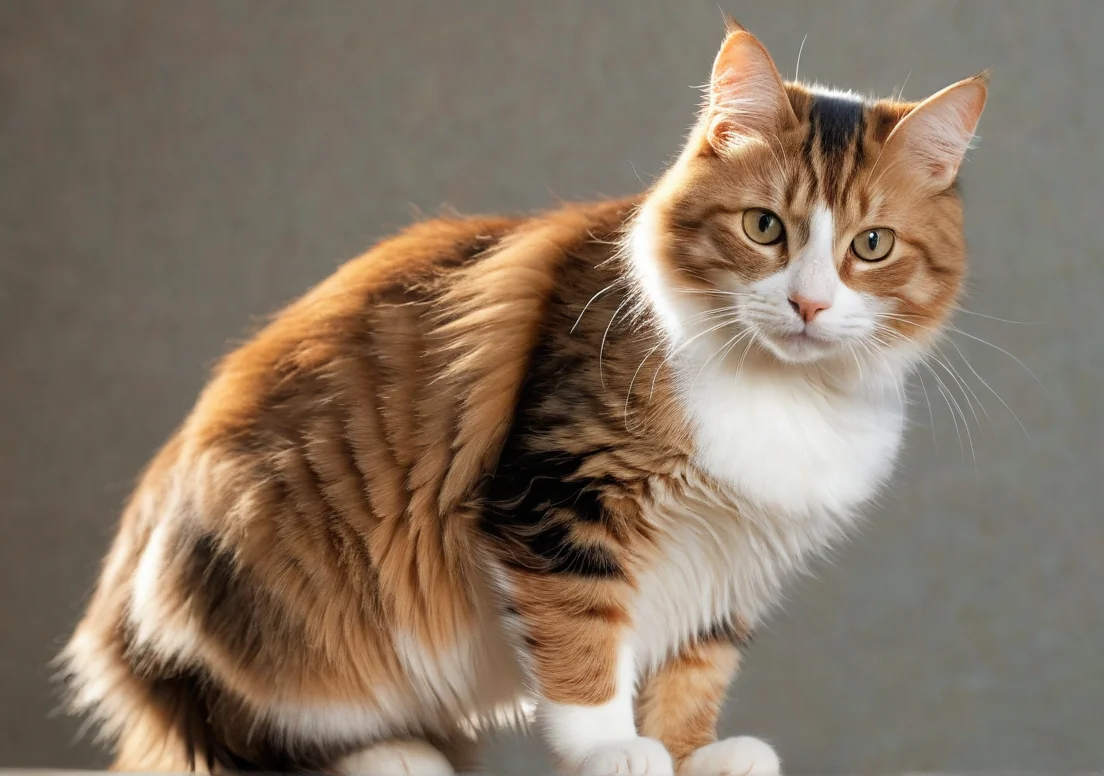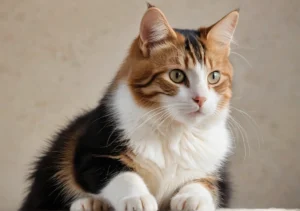Cats can be quirky creatures, often baffling their human companions with peculiar behaviors. One of the more puzzling antics is when they decide to leap onto your back, seemingly out of nowhere.
This behavior is typically a mix of playfulness, affection, and a desire for a higher vantage point. Cats often seek to assert dominance or simply want to snuggle up close in a place they feel safe. There’s a lot more at play here than just a leap; the reasons are fascinating and might just surprise you.

Why Do Cats Jump on Your Back?
You’ve probably felt the sudden thud of your cat landing on your back. This playful leap can catch you off guard, but there are a few key reasons behind it. Cats are naturally instinctual creatures, and their behaviors often reflect their innate hunting strategies and social interactions.
Playfulness : That leap could be part of a playful game. Cats love to pounce—it’s not just fun; it hones their skills as hunters. When they jump on your back, they might view you as part of that playful territory.
Attention-Seeking : If your feline feels ignored, they might hop on you to grab your attention. Cats are social beings, and the leap is often a direct invitation to interact.
Affectionate Behavior : Your kitty may simply want to be closer to you. Cats often express their love by finding a cozy spot to curl up, and your back may be the perfect perch.
Curiosity and Exploration : Cats are curious creatures. Jumping on your back lets them survey their surroundings from a new height. They’re often on the lookout for anything that moves, and getting up high grants them a fantastic vantage point.
Seeking Comfort : Sometimes, your back feels like a warm, safe haven. If your cat seeks a world of warmth and security, that’s you providing it.
Understanding the “why” helps to appreciate these amusing antics. Cats are a unique blend of playful and affectionate, and each jump has meaning rooted in their nature.
Is It a Sign of Affection?
Absolutely! Cats have their own way of showing love, and your back can be a genuine focal point for that affection. When a cat jumps onto you, they’re often expressing trust and affection. It’s kind of like considering you part of their family unit.
In addition to the leaps, a kitty might follow up with head bumps or purrs, further underscoring their fondness. Notably, this behavior is often more prevalent in cats that bond closely with their owners. If your cat is particularly needy or enjoys being close to you, that jump could mean, “Hey, I care about you!”
Of course, the method of play varies. Here are some signs that might indicate affection:
- Purring: Often a telltale sign of contentment—if your cat purrs while on your back, they’re likely happy to be there.
- Kneading: If they dig their paws into your back, it’s an instinctual behavior reminiscent of kittenhood; they’re likely feeling comfy and secure.
- Chirping or Meowing: These vocalizations can signal excitement and happiness when they land on you.
Each jump tells you something about your cat’s mood and intentions. It’s a simple yet profound way they convey their deep bond with you.
Are They Seeking Attention?
Cats have a unique way of gauging your availability and often take matters into their own paws. When your feline friend jumps onto your back, they might just be after a little attention. In their playful little minds, they’re saying, “Hey, I’m here! Pay attention to me!” This behavior can be a call for companionship, especially if they notice you’re busy or preoccupied.
Curious about their intent? If you frequently react when they make this leap—petting them, talking to them, or even laughing—you might be reinforcing that behavior. To redirect their attention-seeking antics, try setting aside specific time for play or cuddles. Use toys to engage them, keeping the interaction playful and focused. This way, you’ll fulfill their need for attention, and they’ll be less inclined to jump on you unexpectedly.
Do They Want to Play?
If your cat sees you as a potential playmate, jumping on your back can be an instinctive way to initiate fun. They’re natural hunters, driven by instincts to pounce and chase. When they hop on you, they might see you as part of the action, where the thrill of the hunt becomes a game of tag.
Consider their body language: are they twitching their tail, or do they have those curious, wide eyes? These signs usually indicate they’re ready for some fun.
To foster this playful spirit, consider adding new toys or interactive elements to their environment. Here are a few ideas:
- Feather Wands: Great for simulating hunting.
- Laser Pointers: Perfect for letting them chase a treat.
- Puzzle Toys: Engage their mind while they play.
Providing varied play options can help channel their playful energy and give you a break from unexpected back jumps!
Could It Be a Territorial Behavior?
Cats are instinctive creatures, and jumping on your back might be their way of asserting territory. In the wild, cats claim their space by marking it with scent glands located in their cheeks and paws. When your cat leaps onto your back, this could signify they’re marking you as theirs. It’s a blend of affection and instinct—your back becomes their way of saying, “This is my spot!”
Moreover, this behavior often reflects your cat’s confidence. If your cat feels secure in the environment, they’re more likely to engage in jumping as a form of play or dominance. Keep an eye on the context: if your cat exhibits this behavior repeatedly, especially with a playful or relaxed demeanor, it’s quite possible they’re reveling in their territorial claim.
What Does Their Body Language Tell You?
Understanding your kitty’s body language can reveal a lot about their motivations. For instance, if your cat jumps up while wagging its tail and purring, it’s likely expressing excitement and affection. They see you as a safe retreat or a fun playmate!
Conversely, a cat that suddenly jumps onto your back with a stiff body or flattened ears might be more stressed than playful. This could indicate surprise or an attempt to flee from something that startled them.
Also, watch for their claws. If they’re playfully gripping you, that’s a sign they’re having fun. But if they dig in too hard, it might indicate they’re feeling anxious or threatened. Either way, respecting your cat’s space and understanding their cues will enhance your bond and ensure that playful moments don’t turn into skirmishes.
Are They Feeling Anxious or Scared?
Cats are creatures of habit, and any change in their environment can rattle them. If your cat jumps on your back, it might be seeking comfort, especially during stressful situations like loud noises, new pets, or moving furniture. Cats often look to their human companions for safety.
When they jump on your back, they’re likely trying to self-soothe. This behavior mimics how kittens naturally seek their mother in times of distress. If your feline buddy is skittish or cautious, watch for other signs of anxiety like hiding, excessive grooming, or aggression. Make sure to provide a safe and cozy space for them to retreat to when they feel overwhelmed. Adding vertical spaces like shelves or cat trees can help them feel more secure, as they can observe their surroundings from above while knowing they have an escape route.
What Are Some Health Considerations?
Jumping on your back could also hint at underlying health issues. Cats are great at hiding discomfort, but sudden behavior changes often signal that something’s not right. If your normally mellow cat is now frequently climbing onto your back, it might be worth investigating.
Consider these possibilities:
- Pain: Conditions like arthritis can make jumping a desperate attempt to seek support. Cats in pain might want to stay close to you while showing signs of discomfort.
- Thyroid Issues: Hyperthyroidism can lead to increased anxiety and energy levels, causing your cat to seek your presence more often.
- Behavioral Changes: Sudden changes in behavior, such as seeking more physical contact, could also be a sign of conditions like diabetes or neurologic disorders.
If this behavior persists, it’s best to consult with a veterinarian for a thorough examination to rule out any potential health concerns. Being attentive to changes helps ensure your furry friend stays healthy and happy.
Fun and Fascinating Cat Trivia
Cats can be quirky creatures, and their behaviors often leave us scratching our heads. One interesting tidbit: cats are natural climbers. Their instinct to reach higher vantage points is rooted in survival; it gives them a sense of security and allows them to survey their environment. So when your cat decides to jump on your back, it might just be seeking a cozy, elevated perch.
Another fun fact—cats communicate through their bodies. The way they position their tails, ears, and whiskers conveys emotions and intentions. If your cat leaps onto your back, it may be trying to engage with you in a playful manner or simply say, “Hey, I’m here!”
Playfulness is also a motivator. Cats often see their human companions as part of their playground. It’s not unusual for them to take a flying leap at their favorite climbing structure—aka, you! This sort of behavior can also indicate they’re energized and ready for some fun, so be prepared for a bit of wrestling or playful antics.
Lastly, grooming behavior can factor in. Cats often groom each other as a sign of affection, and climbing on you might be their way of showing they’re comfortable and connected. Understanding these behaviors can deepen your bond with your furry friend and shed light on their unique ways of interacting.
Alex, a passionate animal lover, has experience in training and understanding animal behavior. As a proud pet parent to two dogs and three cats, he founded AnimalReport.net to share insights from animal experts and expand his knowledge of the animal kingdom.




